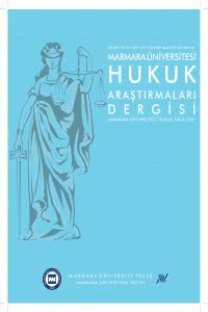Devleti Öğretme Biçimi Olarak Siyaset Bilimi ve Fransa’daki Kökleri
Siyasetin kurumsallaşmış bir eğitim merkezinde öğretilmesi, Platon’un Akademiasına kadar gitse de çağdaş anlamda bu alana özgülenen, belirli bir müfredata bağlı eğitim kurumlarının açılması oldukça yenidir. Émile Boutmy’nin öncülüğünde, 1871’de Paris’te açılan “École libre des Sciences Politiques” bu eğitim kurumlarının örneklerinden biridir. “École libre des Sciences Politiques”, devleti istisnai bir biçimde öğretme iddiası ile açılmıştır. Pozitivizmin, yükseldiği dönemde, hukuk fakültelerindeki eğitiminin dönüştüğü bir evrede; bu okul, Fransız entelektüellerinin çocuklarının geleceği için bir alternatif yaratma amacı taşıyordu. Böyle bir okulun açılması, sadece belli bir kesimin eğitimine yönelik yararcı bir yaklaşım olarak değerlendirilemez. Boutmy; o dönemde Fransa’daki yüksek öğrenim kurumlarında yaşanan, çağını anlamayan, siyasi düşünce fakirliğinden bahsediyor ve “Siyasal Bilimler Okulu’nun”, “devlet bilimi” dersini öğretme görevini yüklendiğini savunuyordu. Çünkü bu dönemde; Fransa’da, modern devletin siyasal kurumları, demokratik yönetimin inşasıyla dönüşmektedir. “Devlet bilimi”, bu dönüşümü adeta sosyal bir sanat gibi açıklayabilmeli ve idari dokuyu yönlendiren elitlere, bu sanatı öğretmeliydi. Okul, bir meslek okulu değildi. Mezunlarını belirli bir kariyere hazırlamıyordu. Boutmy’nin asıl amacı; yeni bürokratik yapının nasıl tasnif edildiğini, bir yönetim bilimleri ansiklopedisi içinde ortaya koymaktı. Böylece bilimsel olarak, politika ve devlet arasındaki bağlantıyı, anlamak ve anlatmak kolaylaşacaktır. “Devleti bilmek için ve devleti öğretmek için” özel bir okul açmak şaşırtıcı değil miydi? Hayır değildi. Çünkü Siyaset Bilimi’nin yükselişi, yeni bir toplum dokusunun anlaşılmasına yardım ediyordu. Bu; yüzyıllardır devleti anlatan literatürle harmanlanmış ama ondan bağımsız ve uygulamayı ihmal etmeyen, stilize bir öğrenme biçimiydi.
Political Science as the Way of Teaching the State and Its Roots in France
Although the teaching of politics in an institutionalized education center goes back to Plato’s ‘Academia, it is quite new to open educational institutions which are specific to this field in a contemporary sense. The “École libre des Sciences Politiques” which was opened in Paris in 1871 under the leadership of Émile Boutmy, is an example of these educational institutions. “École libre des Sciences Politiques” was opened with the claim of teaching the state in an exceptional way. At a time when positivism was rising, the education of law faculties was transformed; this school was intended to create an alternative for the future of children of French intellectuals. The opening of such a school cannot be regarded as a pragmatic approach to the education of a particular population. Boutmy was mentioning about the poverty of political thought in the French institutions at that time, which did not understand its age, and he argued that the “School of Political Sciences” undertook the task of teaching “state science”. Because in that period in France, the political institutions of the modern state were transforming together with the democratic state of government. “State science” should be able to explain this transformation as a social art and should teach to the elites who lead the administrive fabric. The school was not a vocational institution of education and it was not preaparing its graduates for a certain career. The main purpose of Boutmy was to reveal how the new bureacratic structure was classified, in an encyclopedia of administrive sciences. Thus, scientifically, it will be easier to understand and to explain the connection between politics and the state. Wasn’t it surprising to open a private school “to know and to teach the state”? No, it was not. Because the rise of political sciences helped to understand a new social fabric. This was a stylized form of learning that blended with the literature describing the state for centuries but was independent of it, and did not neglect the practice.
___
- Akkaya Kia, Rukiye, Bir Ders Konusu Olarak Devlet, Genişletilmiş 2.Bası, Beta Y.,İstanbul, 2016.
- Begliuti, Jacqueline, “Les “Sciences d’État” et la Faculté de Droit de Toulouse”, Etudes d’Histoire du Droit et des Idées Politiques, No. 13/2009.
- Boutmy, Émile, Projet d’une Faculté libre des sciences politiques, Paris, 1871.
- Boutmy, Émile, De l’institution d’une licence ès sciences politiques et administratives dans les facultés de droit, Paris, 1881.
- Boutmy, M. É., Des rapports et des limites des études juridiques et des études politiques, Paris, 1889.
- Boutmy, M. É., l’École Libre Sciences Politiques, Extrait du Rapport Présenté à l’Assemblée Génerale du 6 Février 1879, Paris, 1879.
- Boutmy, É., Le Baccalauréat (Projets de réform), Paris, 1899.
- Boutmy, Émile, Taine, Scherer, Laboulaye, Paris, 1901.
- Boutmy, Émile, Le Développement de la Constitution et de la Société Politique en Angleterre, Paris, 1907.
- Cicero, Devlet Üzerine, Çev. C.Cengiz Çevik, İthaki Y., İstanbul, 2014.
- Damamme, Dominique , “D’une école des Science Politiques”, Politix, Vol.1, No:3-4, 1988.
- Favre, Pierre, Naissances de la Science Politique en France (1870-1914), Fayard, Paris, 1989.
- Hobsbawm, Eric, Devrim Çağı (1789-1848), Çev.Bahadır Sina Şenel, Dost Y.,Ankara, 1998.
- Kışlalı, Ahmet Taner, Siyaset Bilimi, Ankara, 1987.
- Laurent, Sébestien, “L’influence des le-playsiens et de l’économie sociale à l’Ecole libre des sciences politiques (1871-1914) jalons pour une recherche”, Les Études Sociales, N.122, Paris, 1994.
- Mouffe, Chantal, Siyasal Üzerine, Çev.Mehmet Ratip, İletişim Y.,İstanbul, 2013.
- Platon, Devlet Adamı, Çev.Behice Boran, Milli Eğitim Bakanlığı Y.,Ankara, 1960.
- Supiot Alain, Homo Juridicus, Çev. Bige Açımuz, Dost Y., Ankara, 2014.
- Vanneuville, Rachel, “La Mise en Forme Savante des Sciences Politiques”, Politix, V.15-N.59, 2002.
- ISSN: 2146-0590
- Yayın Aralığı: Yılda 2 Sayı
- Başlangıç: 1996
- Yayıncı: Marmara Üniversitesi
Sayıdaki Diğer Makaleler
İhmalin Takdirinde Yeni Bir Ölçü: “Kişiselleştirilmiş Özen Ölçüsü”
İhmalin Takdirinde Yeni Bir Ölçü: Kişiselleştirilmiş Özen Ölçüsü
Kambiyo Senetlerinde Çizilmiş Cironun Hüküm ve Sonuçları
Devleti Öğretme Biçimi Olarak Siyaset Bilimi ve Fransa’daki Kökleri
Montreal Sözleşmesi Kapsamında Beşinci Yetki Kuralı ve Uygulaması
Mukayeseli Hukukta Standart Sözleşme Hükümlerinin Çatışması ve Bu Duruma Bağlanan Hukuki Sonuçlar
E. Aksın ATAR, ERTUĞRUL DOĞAN ERZENGİN
Hekimin Sorumluluğunun Belirlenmesi Bakımından Hekim İle Hasta Arasındaki İlişkinin Hukuki Mahiyeti
